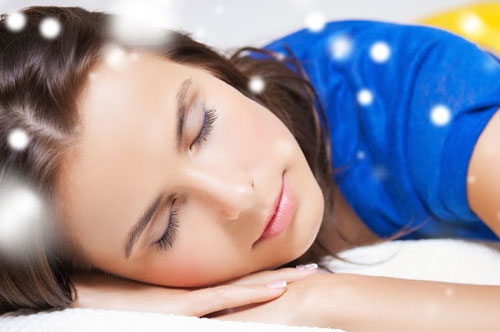First experience with this office and found everything to be superior, from Dr Ky to the assistants and administrative staff. Thorough explanations all the way from first consult to check out. This is the least amount of pain of any dental procedure I’ve ever had. They care about you and want to lessen any discomfort.

Maybe your partner’s been complaining about your snoring. Perhaps you’ve been waking frequently at night, or have been suffering from daytime exhaustion.
Snoring and disrupted sleep may seem like no big deal — or at least something you can learn to live with. But they may be signs of sleep apnea. And the potential consequences of this surprisingly common sleep disorder go far beyond being banished to the couch or spare bedroom.
To learn more about the importance of sleep apnea treatment and to book an appointment, call Aberdeen Smiles of Aberdeen, SD at 605-277-9049.
Sleep Apnea and Your Health
Sleep apnea is downright dangerous. People with it are six times more likely to die in car accidents than the general population, due to fatigue. The condition is also closely tied to a number of systemic health problems. Men and women with sleep apnea have an elevated risk for stroke and heart disease. According to the National Commission on Sleep Disorders Research, about 38,000 deaths per year can be attributed to cardiovascular problems in some way related to sleep apnea.
Poor sleep is also associated with weight gain. Sleep apnea is believed to make your body manufacture more of a hormone called ghrelin, which causes cravings of carbs and sweets. This makes it extremely difficult to shed excess pounds.
And let’s not forget that partners suffer too. People who share a bed with someone with sleep apnea lose as much as an hour of sleep each night. That’s enough to have a real effect on alertness and ability to function during the day.
Approximately 18 million Americans, or about one in fifteen, likely have sleep apnea. An estimated 80% of these cases are undiagnosed. For your health, for your partner’s health, and for your quality of life, don’t be part of that grim statistic.
Sleep Apnea Is a Cessation of Breathing
If you have sleep apnea, you literally stop breathing during the night. These episodes of not breathing may occur dozens of times each hour and hundreds of times over the course of the night!
There are two major types of sleep apnea. Central sleep apnea happens when your brain fails to signal your muscles to breathe. Obstructive sleep apnea is the most common type by far. It is caused by a physical obstruction — most commonly, soft tissue from the back of the throat — blocking your airway. It can vary in severity, but tends to worsen over time.
Know Your Sleep Apnea Symptoms
Do these symptoms (or even just some of them) sound uncomfortably familiar? If so, you may have sleep apnea.
- You snore loudly at night
- A partner or family member has seen you stop breathing as you sleep
- You suffer from insomnia
- You tend to wake abruptly and frequently at night
- When you wake up, you often have a dry mouth, sore throat, or headache
- You are often fatigued or sleepy during the day
- You are irritable or moody
- You have difficulty focusing and paying attention
Know Your Sleep Apnea Risk
While anyone can get sleep apnea, even children, certain factors increase your likelihood of having it.
- Sleep apnea is more common in men than in women, though a woman’s risk increases with menopause.
- People who are overweight or obese are more likely to have sleep apnea.
- People with wide necks tend to have narrower airways and an increased risk.
- Sleep apnea has a genetic component. So if you have a family history of the disorder, you may be more likely to get it too.
- Alcohol, sedatives, and tranquilizers relax the throat muscles, making them more likely to block the airway.
- Smokers are three times more likely to have sleep apnea than non-smokers. This may be due to inflammation and fluid retention.
- Your sleep apnea risk increases with age.
We Have the Sleep Apnea Treatment You Need
If you believe you suffer from sleep apnea, it’s time to do something about it. You will sleep longer and better without waking up. You will be well rested and alert during the day. And you will reduce your likelihood of suffering from high blood pressure, heart disease, diabetes, and other systemic health problems.
At Aberdeen Smiles, we have solutions to get you sleeping soundly through the night once again.
To book a sleep apnea consultation with Dr. Drake, fill out our convenient web form and we will get back to you quickly. Or you may call our Aberdeen, SD office directly at 605-277-9049.
;


